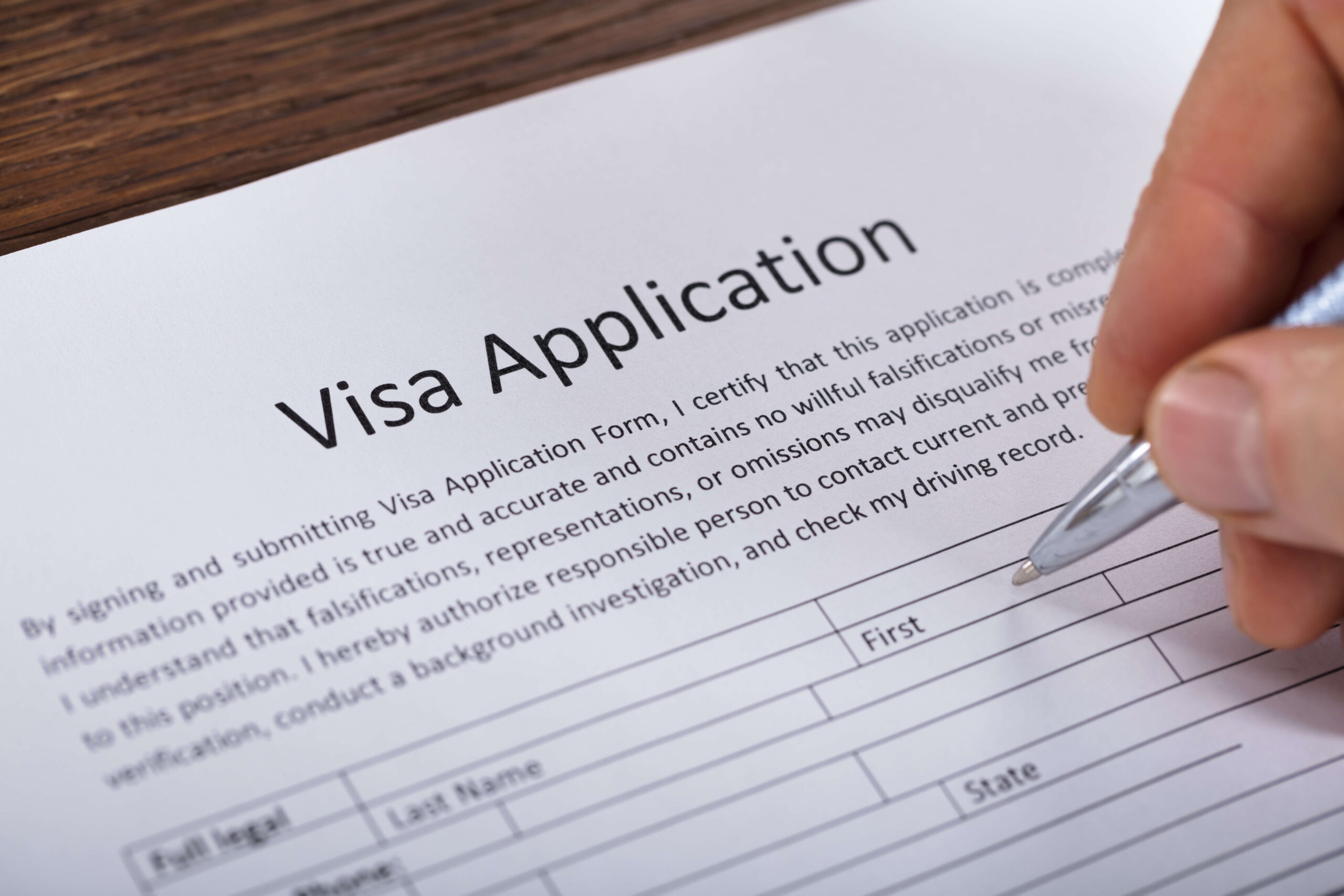News
NDITDA Bill Must Not Destroy the New Oil Well, Tech

By Joel Popoola
In tech terms, 2007 was a thousand years ago.
YouTube was a little over a year old. Instagram and Snapchat didn’t exist. TikTok wouldn’t go international for another decade.
That’s why it’s only sensible that we update out technology laws to reflect the Nigeria we live in now.
But this regulatory refresh must not come at the expense of our economic future.
This week has brought news that the National Information Technology Development Agency is apparently seeking to extend powers granted in 2007 to provide the Nigerian tech sector with advisory guidelines to a fully-fledged regulator with the powers to determine which businesses are allowed to operate.
Under the proposals, companies would also have to pay a 1% levy on their profits to NITDA. Companies failing to comply with the rules would risk jail time or minimum fines of 30 million naira.
In the aftermath of the government’s banning of both cryptocurrency and Twitter, insiders fear the move may have the effect of hindering innovation in Africa’s fastest growing tech ecosystem.
This must not be allowed to happen.
Tech is a sector which has defied the stagnant economy which has defined Nigeria in recent years. The internationally-renowned Financial Times recently branded Nigeria “Africa’s hottest start-up scene”. Of every five dollars invested in venture capital funding in Africa in 2020, one dollar went to Nigeria. In Flutterswitch and Intersave our nation is home to two of Africa’s four unicorns- companies valued at over $1billion. Investors poured $1.6billion into the Nigerian tech scene between 2016 and 2020.
It is this reason why tech’s role in the Nigerian economy has been called “the new oil”. And as the world adapts to a post-oil future, it’s something which is only going to become more and more critical. We must not intentionally destroy the new oil’s well.
As the Financial Times writes, the Nigerian government’s “byzantine structure, endemic corruption and penchant for free speech crackdowns” already inhibits innovation and discourages investment. Heavy handed regulation will only encourage investors and businesses to look elsewhere.
Fintech – digital banking – is one of the most significant divers of the Nigerian tech boom, and in a nation where 60 million people do not have a bank account and where 96% of transactions still take place using cash, the sector is only going to expand – democratising money as it does. No-one is seriously suggesting this area should be an unregulated free-for-all. Consumers need to know that they are investing in a reputable and regulated organisation and not a digital pyramid scheme.
Regulation which supports instead of strangling innovation is the key to prosperity. But the Nigerian tech sector has all-too-often found both the NDITA and other governmental bodies remote, inaccessible and even antagonistic.
This approach is symptomatic and symbolic of the digital divide between decision makers and ordinary Nigerians.
At the digital democracy campaign I lead we are trying to bridge that divide with technology.
We have developed a free app called Rate Your Leader to help elected officials better engage with both technology and the people who elect them.
The app allows direct person-to-person communication between verified voters and confirmed local leaders. As a result, Rate Your Leader allows the rapid raising of issues and concerns and the sharing of information, allowing communities to collaborate to make local areas better and helping politicians understand what matters most to the people who elect them. Rate Your Leader’s abuse-proof technology ensures that this communication is always courteous and civil.
Rate Your Leader also lets local people rate politicians for accessibility, transparency and honesty – building trust in both politicians and political institutions.
The Nigerian tech sector is alarmed by the prospect of a bill which seems to give a single agency the power to decide which businesses can operate and which technologies can come to market, and baffled with a bill which seems to entirely contradict the Nigerian Startup Bill, a tech industry–led initiative much better targeted at delivering a more startup-friendly business environment.
As with so many aspects of the Nigerian political landscape, the key to overcoming these concerns is better engagement – engagement that new technology ironically makes it a lot easier to facilitate.
If we are to safeguard a more prosperous future, it is engagement which must take place at the earliest opportunity – and at Rate Your Leader, we are willing to support that engagement in any way we can.
Joel Popoola is a Nigerian tech entrepreneur, digital democracy campaigner and founder of the Rate Your Leader app. He can be reached via @JOPopoola
News
Glo Subscribers Win Big in Palmpay Recharge and Win Bonanza

Glo subscribers who use Palmpay app to recharge their lines are in for an exciting time as winners have begun to emerge in the ongoing second edition of the “Recharge and Win Bonanza”, a collaborative promo between Palmpay and Globacom.
The promotion rewards Glo users who recharge their lines via the Palmpay app with a chance to win premium prizes, including the iPhone 15 Pro, Infinix Hot 40, and several other exciting giveaways. According to a joint statement from both companies, the initiative is designed to encourage seamless digital recharges while rewarding customer loyalty in the process.
So far, winners have been announced from the latest draws, with several participants winning brand new Infinix Hot 40 smartphones and other prizes. Among the lucky winners are Basirat Mayowa Opatunji from Osogbo, Osun State, Wisdom Anayo Uzoma, Afeez Akanfe Muraina, and Oyedikachi Herbert.
To ensure convenience, winners outside Lagos will have their prizes dispatched to the nearest Palmpay office for pickup.
Participation in the promo is open until August 8, 2025, and is as simple as recharging a Glo line with ₦500 or more via the Palmpay app. Each qualifying transaction automatically enters the subscriber into a draw for a chance to win. In addition, a daily social media challenge offers more opportunities to win cash prizes.
Palmpay users also enjoy up to 6 percent cashback on Glo airtime and data purchases during the promo. Even better, customers who haven’t activated a Glo data plan in the last 90 days are eligible for a 100% bonus on their recharge.
One of the winners, Basirat Mayowa Opatunji, couldn’t hide her excitement after winning an Infinix Hot 40 smartphone. “I’ve always recharged my Glo line through the Palmpay app, but I never imagined I’d actually win a phone,” she said. Currently studying at Ekiti State University through the Osun State College of Education, Ila Orangun study centre, Basirat added that she would be picking up her prize in Osogbo.
To participate in the ongoing bonanza, Glo subscribers can simply visit: http://bit.ly/PalmPaySms
News
Review Your New Visa Rules, Tinubu’s Govt Urges U.S.

The Federal government has responded to the United States’ recent visa rules that reduce how long Nigerian visitors can stay in the United States and limit them to one entry per visa by calling on Washington to reconsider its new visa policy.
The U.S. Department of State had recently updated its non-immigrant visa policy for several countries, including Nigeria, on Tuesday.
Under the new rule, most non-diplomatic and non-immigrant visas issued to Nigerian citizens will now be valid for only three months and allow just a single entry into the United States.
The changes took effect immediately.In a notice published on its website, the U.S. Embassy and Consulate in Nigeria state: “Those U.S. non-immigrant visas issued prior to July 8, 2025, will retain their status and validity. We wish to underscore, that as is standard globally, visa reciprocity is a continuous process and is subject to review and change at any time, such as increasing or decreasing permitted entries and duration of validity. You can view the latest information on visa reciprocity schedules for all countries at travel.state.gov.
“The Federal government responded to this by describing the new US directive as “misaligned with the principles of reciprocity, equity, and mutual respect” that ought to govern bilateral engagements between friendly nations in a statement released on Wednesday through Kimiebi Imomotimi Ebienfa, the Ministry of Foreign Affairs’ spokesperson.
The Federal government said it views this development with concern and keen interest, particularly given the longstanding cordial relations and strong people-to-people ties between our two countries.
“The attention of the Federal government of Nigeria has been drawn to the recent decision by the United States Government to revise its visa reciprocity schedule for Nigerian citizens, limiting the validity of non-immigrant visas including B1/B2, F and J categories to three months with single entry,” it stated.
“The Federal government views this development with concern and keen interest, particularly given the longstanding cordial relations and strong people-to-people ties between our two countries. The decision appears misaligned with the principles of reciprocity, equity, and mutual respect that should guide bilateral engagements between friendly nations.”
It also claimed that this restriction places a disproportionate burden on Nigerian travellers, students seeking academic opportunities, professionals engaging in legitimate business, families visiting loved ones, and individuals contributing to cultural and educational exchanges.
The government also said it understands that every country has the right to make its own immigration rules, but it hopes the U.S. will “reconsider this decision in the spirit of partnership, cooperation, and shared global responsibilities.”
It also added that diplomatic engagements are ongoing, and the Ministry of Foreign Affairs remains committed to pursuing a resolution that reflects fairness and upholds the values of mutual interest.
News
APC’s ‘Fake Lawsuit’: ADC Assembles 97 Lawyers for Defence

The African Democratic Congress (ADC) has assembled a team of 97 lawyers to challenge what it describes as the All Progressives Congress (APC)’s ‘fake lawsuit’ against its interim leadership, including former Senate President David Mark and former Minister Rauf Aregbesola.
The legal team, led by Barrister Mohammed Sheriff, made this known in Abuja on Tuesday, accusing the ruling APC of filing a suit using the names of individuals who are not members of the ADC.
The latest development follows a stakeholders’ meeting in Abuja between Senator Mark, who is now the ADC’s Interim National Chairman, and the party’s Kogi State chapter.
At the meeting, Mark assured Nigerians that under his leadership, the ADC would operate with total transparency and would not favour any presidential aspirant.
“I don’t own this party more than any other member… All Nigerians must come together and take ownership of the ADC,” he said.
He, therefore, urged party members to set aside their differences and focus on building a united political force, warning that Nigeria’s democracy could fail if citizens remain passive.
The ADC chairman also criticised the APC, saying the ruling party should focus on fixing its own policy failures rather than targeting individuals.
“If they admitted that insecurity was bad and promised to improve it but instead made it worse, should Nigerians continue to support them? The answer is no,” he said.
The ADC alleged that the APC had fabricated names in its lawsuit against the party’s interim leadership.
According to the ADC, investigations showed that the supposed plaintiffs in the suit were not registered members of the party in either Kogi or Nasarawa State.
“It smacks of desperation that a party entrusted with leading 200 million Nigerians would engage in such dishonesty,” the party said.
Mark used the occasion to call for national unity and encouraged Nigerians to support the ADC’s vision of a reformed and people-centred democracy.
“Let us work together to rebuild this nation for future generations,” he urged.
Barrister Sheriff, head of the ADC’s national legal support team, confirmed that 97 lawyers have volunteered to take up the case.
“We are fully prepared to defend the ADC and its leaders against this politically motivated attack,” he said.






